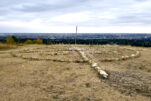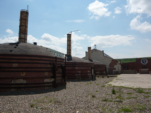Local Muslims honour Hajj, which culminates with Eid al-Adha
By KENDALL KING, Local Journalism Initiative Reporter on July 7, 2022.
kking@medicinehatnews.com Medicine Hat’s Muslim community is preparing for two of the most sacred portions of the Islamic calendar year; Hajj and Eid al-Adha. “Muslims have been given two days of celebration in a year,” Dr. Shafiq Khan, a member of Medicine Hat’s Islamic community and spokesperson for the Islamic Association of Medicine Hat, told the News. “One is when the Ramadan is finished. We call the first celebration, Eid al-Fitr. The second celebration is after Hajj has finished. After that, we celebrate Eid al-Adha.” Hajj – meaning pilgrimage – begins July 7 and lasts until July 12 this year. For Hajj, Muslims from around the world complete a pilgrimage to Mecca, the Islamic Holy City. Each Muslim is urged to make the pilgrimage once in their lifetime, if they have the means, but even those who do not travel to Mecca, can take part in Hajj, by focusing on prayer and sacrifice. Customarily, Muslims with the means to do so will slaughter a lamb for Hajj and share the meat with individuals in need. Following Hajj, Muslims come together to celebrate Eid al-Adha, the festival of sacrifice. “Everybody will get together at that time, then we will do some congregation/prayer, and then we will have a sermon,” Khan said. “After that we have a ritual (where individuals of the same gender) shake hands and hug each other as a way to improve brotherhood. And people you don’t even know, you meet them, shake hands, get to know them. Same thing in every community.” Members of Medicine Hat’s Muslim community will also gather for an Eid al-Adha celebration. “We are, at this time, getting together in the YMCA in South Ridge,” said Khan. “We will have maybe 300 or 400 people there.” While Muslims in Medicine Hat and other areas take part in Hajj and Eid al-Adha annually, Khan feels few non-Muslims know about such. He hopes by sharing information about Hajj and Eid al-Adha, he can provide a deeper understanding of Islam and shine a light on the Muslim community. “There’s still a lot of misunderstanding or misinterpretation among people,” said Khan. “(I hope) to inform people who may have some different understanding.” Khan says Medicine Hat is home to approximately 500 Muslims of various nationalities. “Islam is a universal religion which does not differentiate between any ethnicity or nationality of all human beings. We say, ‘Our one brotherhood.'” Khan welcomes Hatters to connect with the Islamic Association of Medicine Hat, if they wish to learn more about the local community, the religion of Islam or Hajj and Eid al-Adha. 14-13
1 Comment
Oldest




